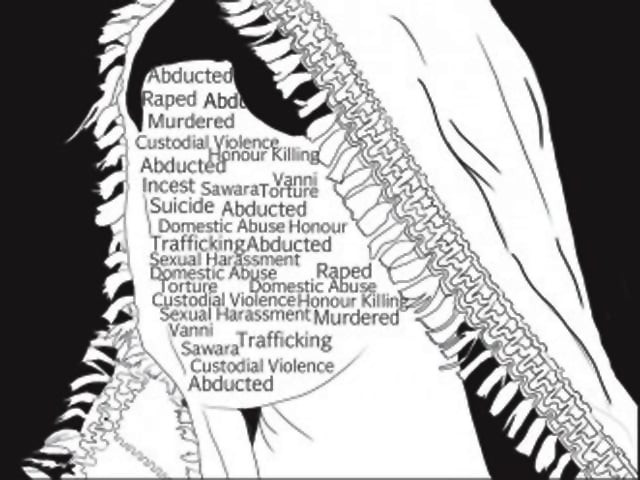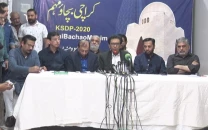Hudood Ordinance: ‘The law is in line with Islam but court procedures in Pakistan are not’
Islamic scholar defends Hudood Ordinance, explains witnesses’ dilemma.

Hudood Ordinance: ‘The law is in line with Islam but court procedures in Pakistan are not’
An Islamic scholar and university professor defended the controversial Hudood Ordinance on Wednesday at a lecture in the Aga Khan University Hospital and affirmed that the laws are “in accordance with Islamic principles”.
Kamaluddin Ahmed, who is pursing his PhD at the Oxford University and has taught at both the Lahore University of Management Sciences and the Aga Khan University, cautioned that while the laws might be in line with Islam, “the procedure of this law in Pakistani courts is not”.
Ahmed was raised in New York and holds a list of degrees from western liberal arts universities.
His lecture was attended by women wearing white lab coats over burqas as well as by women in T-shirts and jeans. There were the usual nods of agreement and the disgruntled whispering in the crowd as women leaned over and shared their views with their friends.
Ahmed started the lecture by emphasising the equality of women and men as explicitly stated in the Holy Quran. His primary position throughout the lecture was that Islamic law must be understood in the context of Islamic theology. He said that Islamic law is often misinterpreted by the media and the courts, even in Islamic countries.
The Hudood Ordinance was passed under Ziaul Haq to implement punishments as stipulated by the Sharia law for extramarital sex, theft and prohibition. The ordinance has been internationally criticised for making rape survivors vulnerable to prosecution in the absence of four upright male witnesses. According to these laws, the penalty for zina, or extramarital sex, is death by stoning or public whipping.
“Scholars can find only two instances in which this capital punishment was implemented during the Holy Prophet’s (PBUH) life,” Ahmed said, explaining that in two separate occasions, a man and a woman confessed to zina and were stoned. He also noted that in the history of Pakistan, no woman has ever been stoned or lashed (as a legal punishment).
Meanwhile, in the more general context of financial laws, Ahmed rationalised the mandate for male rather than female witnesses.
“Allah called for multiple witnesses so that they can confer secretly behind closed doors and help each other remember exactly what they saw,” he said. “Bring two men and if you can’t find two men, bring a man and two women. This is because in Islam, a man and woman are not to confer behind closed doors together.”
He also said that the presence of a man is necessary to bear the brunt of the confrontation in court.
“Witnesses take up the obligation to appear in court and they expose themselves to harm. The male witness should go first and break the ice,” Ahmed said. “The requirement is not a testament to women’s intelligence, but rather for women’s safety. Even in the west, there are certain high-stress combat missions that women are not allowed to participate in.”
In the media’s presentation of Islamic law, and particularly in the 2009 debate surrounding the Hudood Ordinance on a private TV channel, “a lot wasn’t shown and a lot was misstated”, said Ahmed. “It was a tragedy because NGOs and Islamic scholars and feminists would all have agreed that there shouldn’t be women in jail or languishing in court…it was a lost opportunity for genuine dialogue.”
The writer is a graduate of Columbia University’s Journalism School and a fellow for The Express Tribune. She blogs at chereefranco.wordpress.com
Published in The Express Tribune, April 11th, 2011.



















COMMENTS
Comments are moderated and generally will be posted if they are on-topic and not abusive.
For more information, please see our Comments FAQ